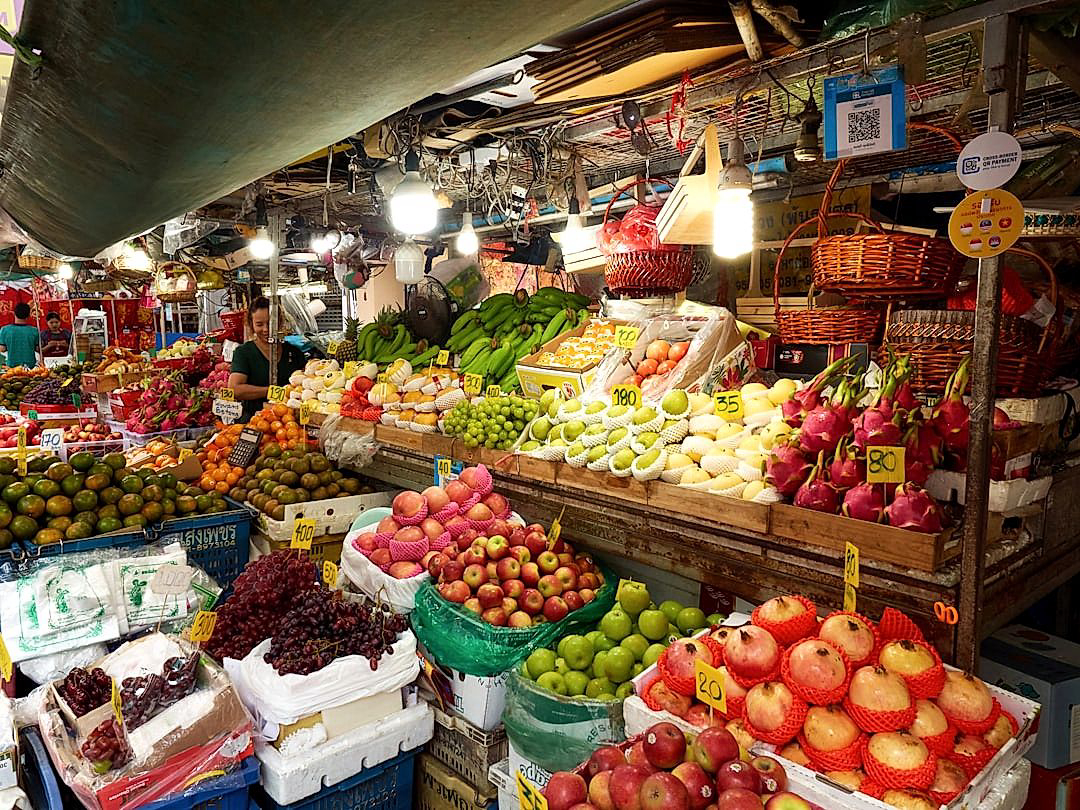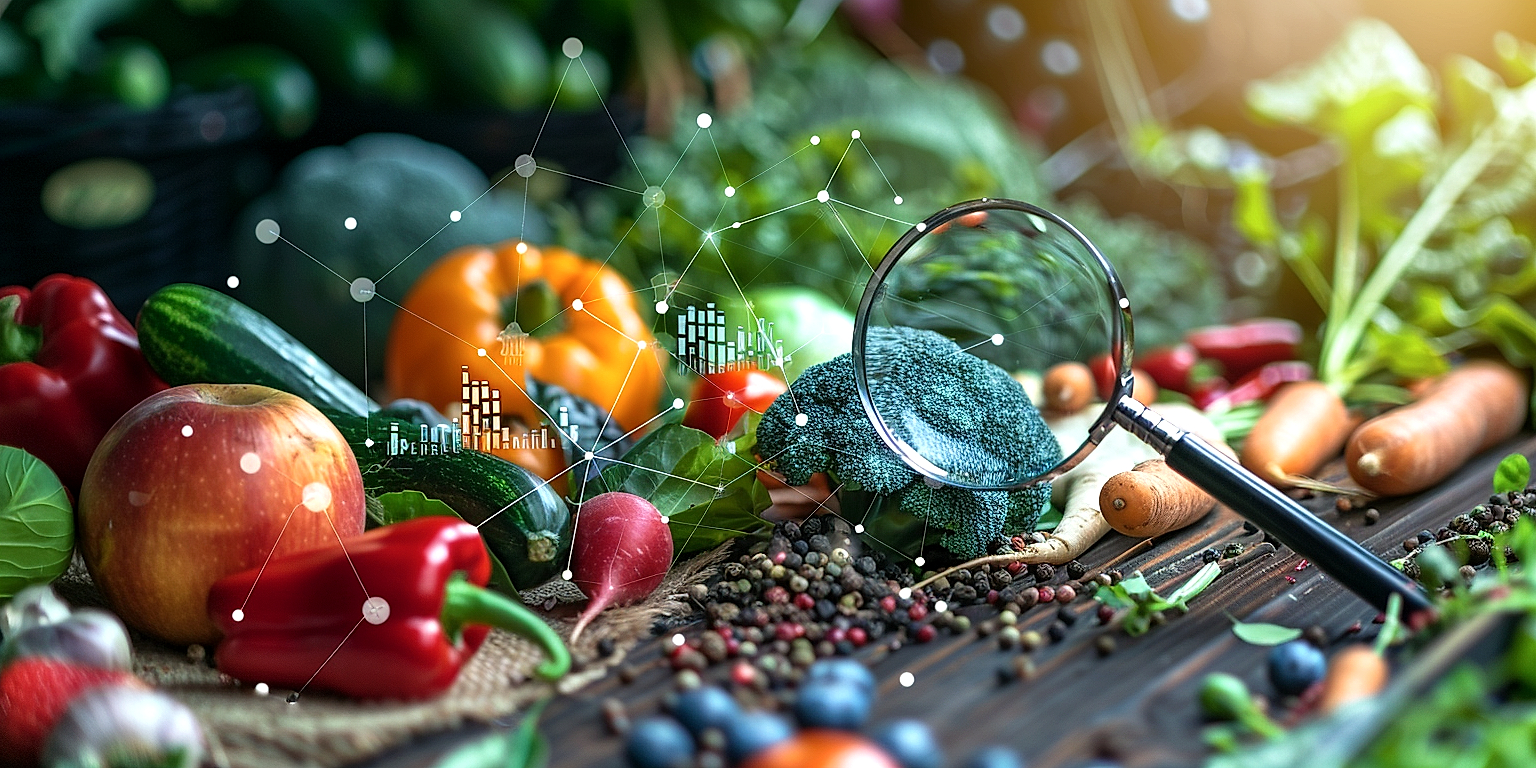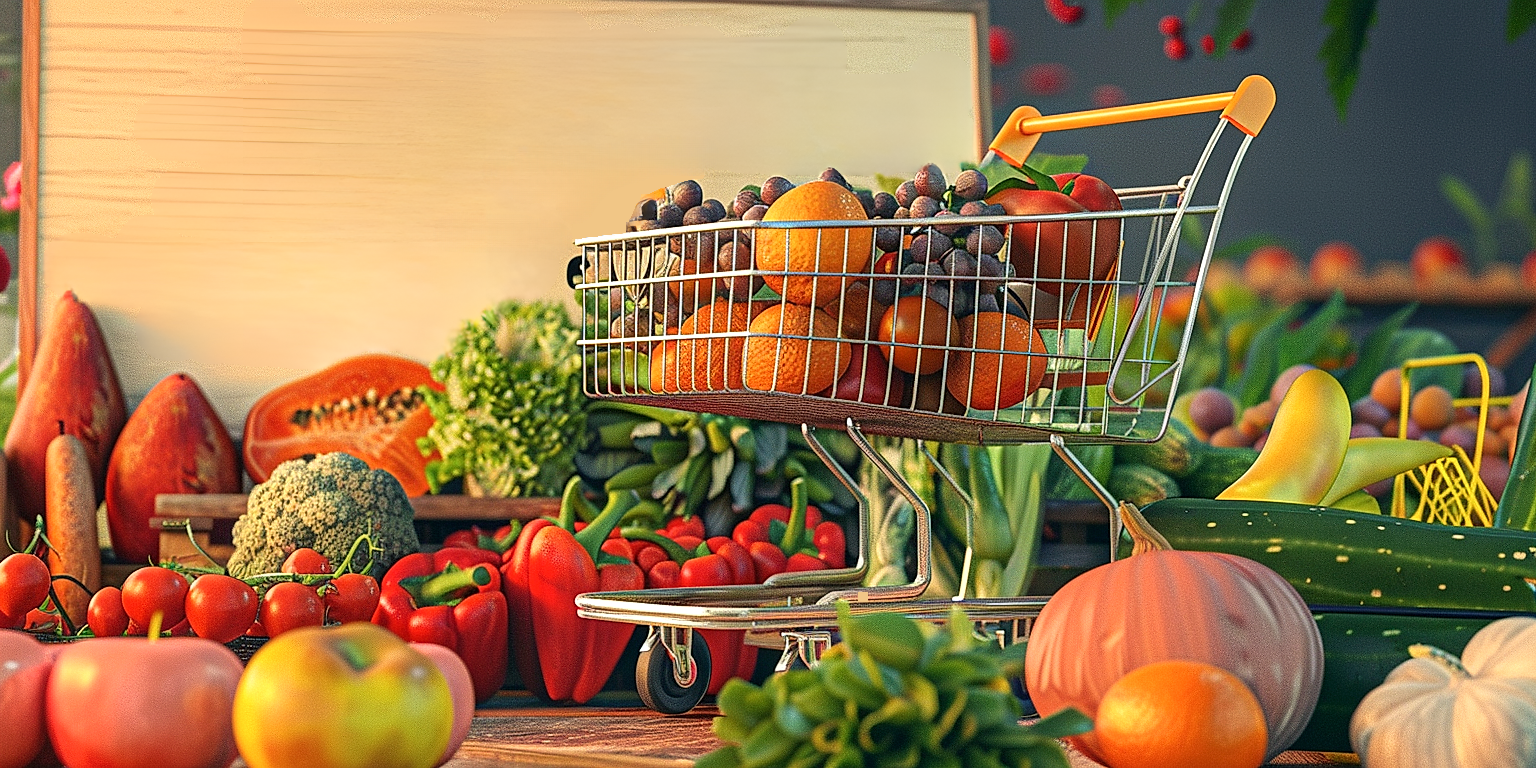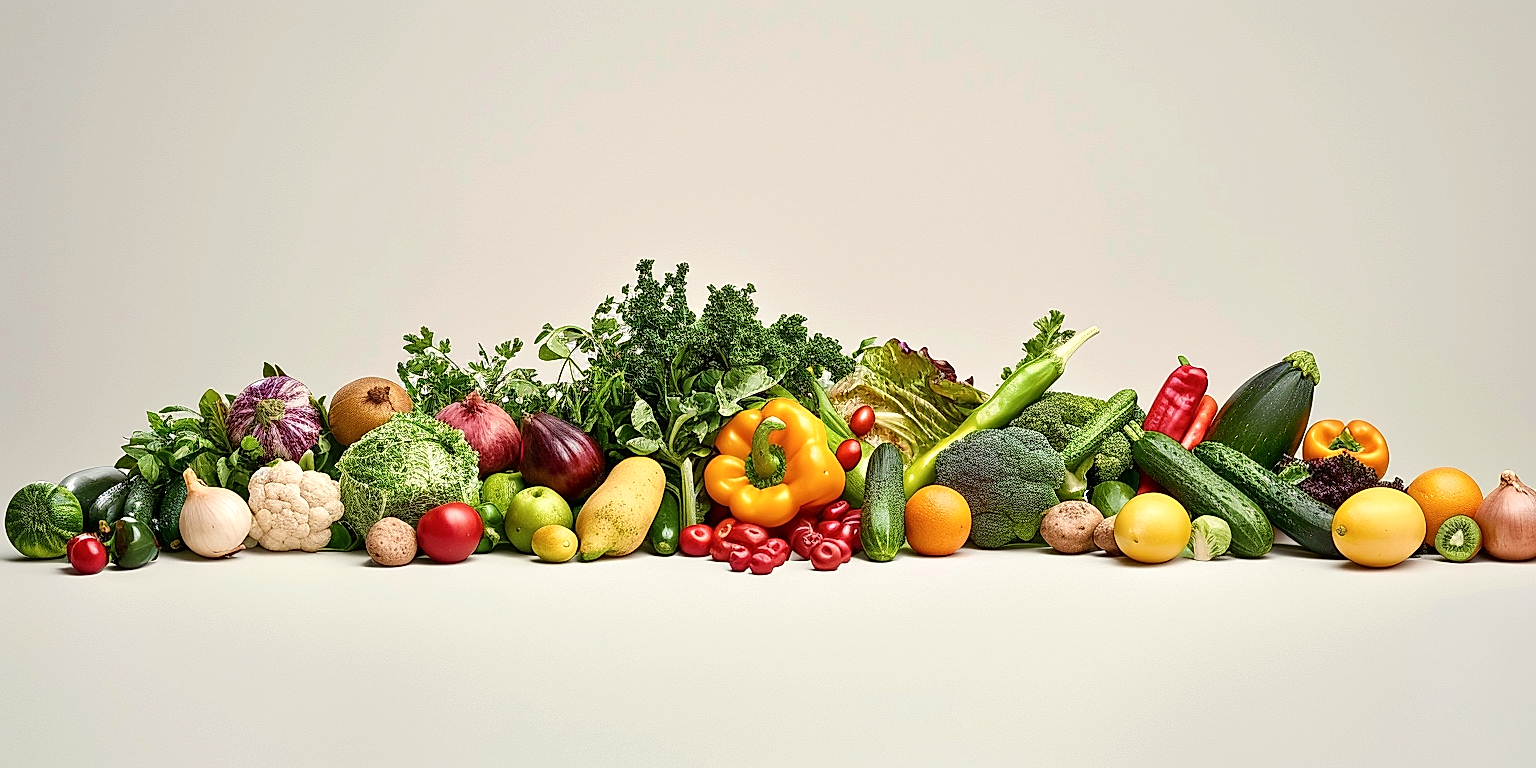As the global drive toward health and wellness evolves, interest in organic produce continues to gain momentum.
This surge in consumer demand is paving the way for new opportunities within retail sectors worldwide.
Many now recognize the foreseeable shift and are aligning their strategies accordingly.
However, this burgeoning landscape remains uncharted territory for many organizations.
Diverse factors determine these emerging opportunities, including changing consumer attitudes, evolving regulatory norms, and market dynamics.
This discussion aims to delve into these determinants and provide insights into future growth prospects for organic produce within the retail space.
Contents
Emerging Markets For Organic Produce Retail
1. Online Delivery Services for Organic Produce
As the demand for healthful and fresh products continues to grow, online delivery services for organic produce are emerging as a popular choice.
These services provide consumers with access to high-quality, farm-fresh produce delivered directly to their doorsteps.
The convenience of these services, combined with the growing awareness of the health benefits of organic produce, contributes to their increasing popularity.
One of the advantages of using an online delivery service for organic produce is the ability to source fresh, seasonal produce that may not be readily available in local supermarkets.
This ability to access a wide range of organic produce contributes to a balanced and varied diet without the need for frequent trips to the grocery store.
Furthermore, these services often include options for subscription boxes that offer a selection of seasonal fruits and vegetables each week.
This element of surprise and anticipation, also known as the ‘veggie lottery’, encourages healthier eating habits and promotes variety in one’s diet.
Another compelling feature of these services is that they often support smaller, local farmers and use packaging that is biodegradable and eco-friendly.
This aspect adds a sustainable and environmentally conscious dimension to the consumer’s choice to buy organic produce online.
Moreover, many of these services provide detailed information about the farmers and the farming methods used to grow the produce.
This transparency builds trust and fosters a connection between the consumer and the source of their food.
Digital platforms for these services are usually user-friendly, with convenient payment and delivery options.
With just a few clicks, consumers can easily place orders and schedule their deliveries at times that suit their schedules.
The trend towards online shopping and home delivery shows no signs of slowing down, making online delivery services for organic produce a promising area in the retail market for organic produce.
Overall, these services are paving the way for a healthier, more sustainable, and more convenient way to consume organic produce.
As these services continue to evolve, they are set to play an increasingly important role in shaping the future of the organic produce retail market.
2. Subscription-Based Organic Produce Boxes
Large populations worldwide are gravitating towards healthier and more environmentally-friendly food options.
One such emerging trend in the organic produce retail space is the adoption of subscription-based organic produce boxes.
The appeal of these boxes is multifold: they offer consumers convenience, consistent quality, and a guarantee of organic production.
Customers subscribe to regular deliveries of a box that is filled with a range of organic produce sourced directly from farmers.
The contents of the box may vary each week, offering customers an opportunity to experiment with different types of produce while enjoying assured organic quality.
From the providers’ end, these boxes are a great opportunity to establish a recurring revenue model and build a loyal customer base.
This subscription model also aids in reducing food wastage as the quantity of produce supplied can be precisely calibrated based on consistent demand.
Many companies operating in this space go a step further by allowing customers to customize their boxes .
This can be in terms of varying the mix of fruits and vegetables, accommodating dietary restrictions, or catering to individual taste preferences.
Such customer-centric personalization further heightens the appeal of these organic produce boxes.
Another key aspect of this business model is the transparency it offers.
Many providers give clear information about the source of each item, the farming practices used, and even the and specific farmer who grew the produce.
This level of transparency contributes to building trust with customers who are then more likely to become repeat purchasers.
It also enables consumers to conscientiously support organic farmers and sustainable farming methods.
In addition to fruits and vegetables, some providers are also offering boxes that include organic dairy products, eggs, and meat.
The subscription-based organic produce box model is a distinct innovation in the organic food retail market that successfully combines a commitment to quality and sustainability with superior customer experience.
This model offers immense potential for growth given the increasing consumer demand for organic products and the desire for convenience and personalization in food shopping.
3. Organic Farmer Market Chains
The rise of organic farmer market chains represents a significant shift in the way consumers procure fresh produce.
At its core, these chains provide consumers with a direct link to organic producers, often bypassing the traditional retail route.
Not only does this model promote fresh, high-quality organic produce, but it also champions the sustainability factor of local farming practices.
These market chains have a stronghold in developed markets such as North America and Europe, cultivating a dedicated consumer base seeking organic produce.
The key to the success of organic farmer market chains lies in the active participation of local organic farmers and a loyal customer base driven by the demand for healthy, fresh, and environmentally-friendly produce.
They tend to feature a variety of fresh fruits, vegetables, dairy, and local artisanal products, attracting consumers with their bounty of organic options.
These chains facilitate direct sales, allowing organic farmers to receive fair compensation for their toils without the intervention of middlemen.
Furthermore, it helps farmers to establish a personal retail presence, building relationships with customers and nurturing consumer-brand loyalty.
Organic farmer markets have seen an increase in popularity due to their community-driven nature, combining the benefits of organic farming and local economies, creating a win-win situation for both farmers and consumers.
A few notable organic farmer market chains include the Farmers Market Organic in the USA and the Soil Association Certified Markets in the UK.
These markets are accredited and regulated by relevant organizations, ensuring their produce is indeed organic and meets established quality standards.
They usually operate on a frequent basis, such as weekly or monthly, making healthy organic produce accessible to the local communities.
Furthermore, they also contribute to the development of sustainable agriculture by promoting organic farming practices and appropriate use of natural resources.
There are, however, some challenges that these organic farmer market chains need to address to sustain their growth in the long run.
These include ensuring consistent product availability, meeting consumer expectations, maintaining organic certification, and coping with the impact of seasonal changes on crop production.
Despite these challenges, the future of organic farmer market chains looks promising, given the increasing consumer awareness and preference for fresh, organic produce sourced directly from farmers.
4. Organic Produce Retail in Asia
The Asian market has seen a remarkable rise in the demand for organic produce in recent years.
This growing demand is driven by an increasing awareness of health issues related to conventional food products and a general shift towards healthier lifestyles amongst Asian consumers.
In response, several organic produce retailers have emerged across the region, catering to this burgeoning demand and providing consumers with a wide variety of organic options.
In contrast to conventional retailers, organic produce retailers focus on offering products that have been grown without the use of synthetic pesticides, genetically modified organisms, or artificially produced fertilizers.
Furthermore, many of these organic retailers are committed to ensuring that their products are sourced ethically, and that farmers who grow the foods are treated fairly and receive an adequate return for their work.
The organic market in Asia is a dynamic one, presenting many opportunities for both organic retailers and farmers alike.
China, in particular, stands out in the region as one of the biggest potential markets for organic produce.
A shift in attitudes in urban areas towards healthier and safer food choices, coupled with high levels of disposable income, has led to an explosion in the domestic organic market.
Japan, South Korea, and India have also seen a surge in demand for organic products, spurred on by similar health concerns and rising incomes.
A growing trend in Asia is the development of organic supermarkets, which dedicate their complete product range to organic foods.
These supermarkets offer a one-stop-shop for consumers seeking to switch entirely to an organic diet, and often support local farmers by sourcing their produce directly.
However, the growth of the organic market in Asia has not been without its challenges.
Issues such as lack of certification and standardization, high prices, and limited availability in many areas are obstacles that need to be addressed to ensure continued growth and sustainability of the sector.
Despite these obstacles, the prospects for organic retailers in Asia appear promising, with policy and industry initiatives already underway to address these challenges.
Furthermore, the potential benefits of successfully navigating these challenges are enormous, given the vast size of the Asian market and the growing desire for healthier, organic food products.
5. Health Conscious Cafes and Restaurants
Over the years, there has been a significant increase in the number of health-conscious cafes and restaurants that prioritize organic produce.
These establishments seek to serve healthy, nutrient-rich meals green, sourced from natural and pesticide-free products.
The most commonly featured items on their menus are fruits and vegetables that are grown organically.
Some even go as far as exclusively using organic meat and dairy products in their dishes.
This trend of prioritizing organic produce in cafes and restaurants has indeed triggered noteworthy changes in the food industry.
These changes include the adoption of more sustainable practices in farming and food production to cater to these establishments’ demands.
A significant majority of these eateries also engage in direct partnerships with organic farmers, to ensure continuous supply of fresh produce.
Customers are increasingly attracted to these establishments because they offer more nutritious options compared to regular eateries.
They also appreciate the transparency in sourcing ingredients, which provides them confidence in the food’s origin and quality.
By offering these organic options, health-conscious restaurants and cafes are encouraging consumers to make healthier food choices.
The impact of this shift is considerable not just from a health perspective, but also for the sustainability of the environment.
As these eateries continue to grow in number, their demand for organic produce is anticipated to significantly boost the organic farming industry.
Health-conscious establishments are important players in the drive towards greater consumption of organic foods, ultimately contributing to the overall growth of the organic produce retail market.
The restaurants and cafes which prioritize the use of organic produce place themselves as leaders in the food industry’s evolution towards sustainability.
In future, these types of cafes and restaurants are expected to continue their upward trajectory, thereby providing additional outlets for organic produce retail.
The Bottom Line
The growing trend of organic produce consumption is clearly embodied across various platforms.
From online delivery services to subscription-based produce boxes, the need for fresh, healthy options has never been more prominent.
Interestingly, this penchant for organic food extends to the retail scene, with Asia demonstrating a substantial market.
Furthermore, the rise of health-conscious cafés and restaurants suggests that the desire for organic meals extends even beyond the home kitchen, signaling not just a fad but a conscious lifestyle choice.
The popularity and mainstream nature of organic sustenance across the globe underscores a prioritization of health and wellness, the importance of sustainable practices, and the appeal of nature-derived, synthetic-free food.




